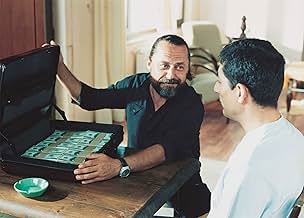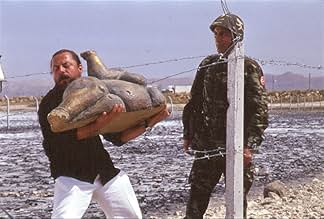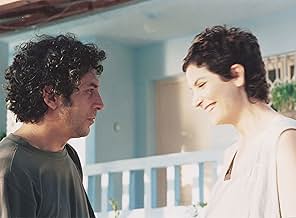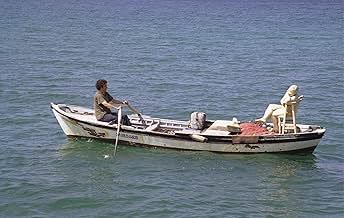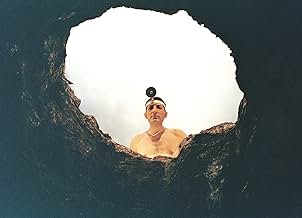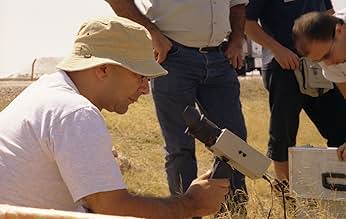CAMUR is one of those movies that might seem rather abstruse at first, but becomes more and more rewarding after repeated viewings.
The central character, Ali (Mustafa Ugurlu) is a conscript in the Turkish army doomed to spend his time protecting the Turkish sector in Cyprus. Unable to speak, he finds some solace in the mud underneath the surface of a lonely salt-flat, which apparently possesses restorative powers. While digging underground, he unearths an ancient artifact which is picked up by his friend Halil (Bulent Yarar) and sold on to a gang of thugs. Unfortunately the artifact is incomplete; the thugs ask Ali and Halil to find the missing parts, and when they fail in their task, they are gunned down in cold blood.
This is the film's basic scenario; within that structure director Dervis Zaim offers a profound meditation on the ways in which the past influences the present. Despite the best efforts of Temel (Taner Birsel) to support efforts at reconciliation between the two communities, Zaim suggests it is more important to acknowledge past sins. Only by doing so can we understand how to move farther forward in the present.
The film ends with an image of peace and renewal, with Ali's newborn baby cradled in his mother's arms - the product of artificial insemination - sitting next to a statue of Ali by the seaside. The water at the back of the shot suggests permanence; the baby renewal. Even in the midst of conflict, it appears that there are 'green shoots' available for peace.

